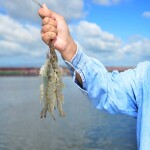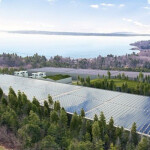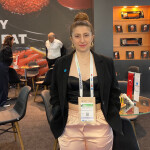Brian Hagenbuch spent a decade in South America, where he was a journalist for Reuters and Time Out in Buenos Aires and Rio de Janeiro. He now lives in Seattle and works as a freelance writer and translator, as well as a commercial fisherman in Bristol Bay.
Author Archive
A coalition of more than 200 businesses that includes Patagonia, Hy-Vee, Whole Foods, and PCC Markets drafted a letter this week to speak out against Pebble Mine, a proposed open-pit copper, gold, and molybdenum mine at the headwaters of the world’s largest sockeye salmon fishery in Bristol Bay, Alaska.
The letter from the group, known as Businesses for Bristol Bay, was addressed to the U.S. Army Corps of Engineers in Anchorage, and
… Read MoreSeveral Bristol Bay fishermen, with financial backing from the Pebble Limited Partnership, have filed a lawsuit against the Bristol Bay Regional Seafood Association (BBRSDA) for what they allege is misuse of the BBRSDA’s funds.
The lawsuit is challenging more than USD 250,000 (EUR 221,900) in BBRSDA contracts with two organizations – United Tribes of Bristol Bay and SalmonState – that oppose Pebble Mine, a proposed open pit
… Read MoreOpposition is growing to a renewed effort to launch a massive mining project near Bristol Bay, Alaska, home to the world’s largest sockeye salmon run.
Mining conglomerate Pebble Limited Partnership applied for a permit in December 2017 for an open pit copper, gold, and molybdenum mine that would sit near critical headwaters that feed the Bristol Bay fishery. Opponents say the Pebble Mine would undermine the area's pristine
… Read MoreThe Bristol Bay Regional Development Association (BBRSDA) is expanding a marketing campaign it believes will make Bristol Bay sockeye salmon a nationally recognized brand.
In 2016, the association launched a pilot marketing program in nine grocery stores in Boulder, Colorado, U.S.A.. The association put its new eye-catching, salmon-hued logo on aprons, printed fish wrap, and stickers, and handed out recipe cards and branded mugs while their
… Read MoreA lot can change in a few months, fisheries economists are quick to say, but early indications point to very favorable conditions for wild Alaska salmon prices in 2019, especially for sockeye, the state’s top-dollar species.
Andy Wink, a fisheries economist who also heads the Bristol Bay Regional Seafood Development Association (BBRSDA), is happy with how the market is looking for the upcoming season.
“I think we’re
… Read MoreThe marine heatwave in northern Pacific waters known as the “Blob” is rearing its ugly head again ...
Image courtesy of
… Read MoreSockeye salmon runs on Alaska’s Upper Cook Inlet should bounce back to above historical levels this coming summer after a paltry 2018 harvest
… Read MoreAlaska’s pollock fishery – the country’s largest and most lucrative – has been scrambling to get ready for the season’s opening day on 20 January in the midst of the government shutdown. Typically, large vessels steam out of Seattle, Washington in early January to scoop up millions of pounds of pollock that have an average first wholesale value of around USD 1 billion (EUR 868.2 million). But the fishery is
… Read MoreA Washington state senator said an entire oyster industry in the southwestern part of the state is at peril if the Department of Ecology continues to prohibit farmers from using a controversial pesticide. The state has twice blocked the use of imidacloprid, a neonicotinoid pesticide many say they need …
Photo courtesy of
… Read MoreThe North Pacific Fisheries Management Council has adopted a new ecosystem-based plan to manage Alaska’s Bering Sea, where climate change is affecting coastal communities and commercial fisheries.
The Bering Sea is among the world’s most productive regions for seafood, but warming water temperatures and a lack of sea ice over recent years have forced the NPFMC to consider new approaches to its management of the sea’s
… Read More








